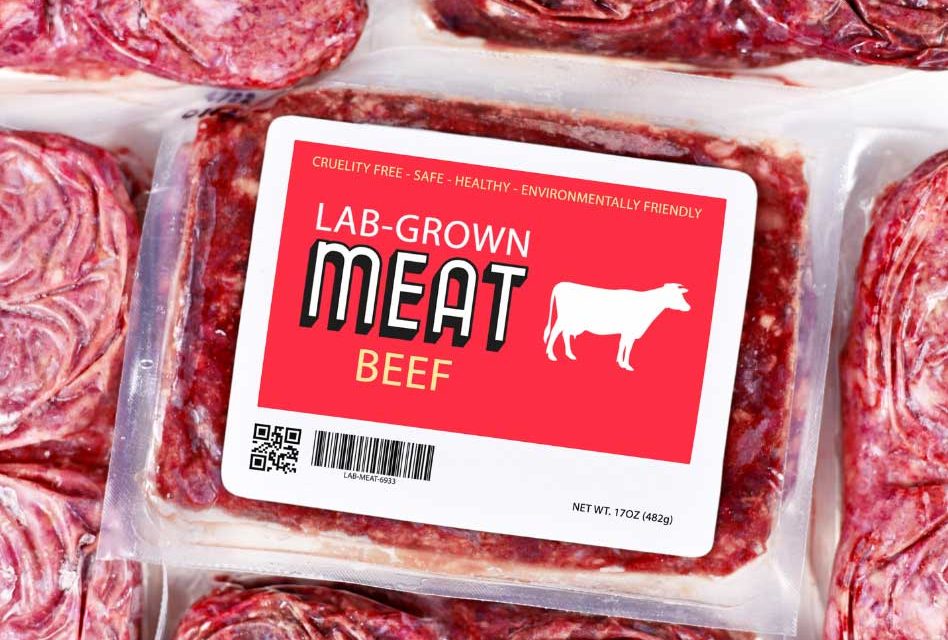Meatable, a Dutch food company, is aiming to deliver ‘cultivated’ meat that they say looks like, tastes like, and has the nutritional profile of traditional meat. The proprietary opti-ox™ technology they use enables Meatable to produce meat rapidly, sustainably, and without harvesting animals, but is a good idea?
Impossible Foods, founded in 2011 in California, produces popular food products that contain a meaty flavor using plants. The company has seen growth in consumption over the last few years, and can now be purchased in grocery stores, fast-food restaurants, and in fine-dining establishments. Impossible Foods’ products continue to grow in popularity with those who those who do not meat, and with those who are looking for a “meat-substitution.”
Cultivated meat, commonly referred to as cultured meat, represents authentic animal-derived meat (which encompasses seafood and organ meats as well). This form of meat is generated by directly cultivating animal cells, rendering the traditional practice of raising and farming animals for sustenance unnecessary, according to Meatable and other lab-created meat proponents.
Cultivated meat consists of identical cell types that can be organized into comparable structures to those found in animal tissues. As a result, it mimics the sensory experiences and nutritional characteristics of conventional meat.
Dutch scientist Mark Post unveiled the first cultivated meat burger on live television in 2013. Two years later, the first four cultivated meat companies were founded. The industry has since grown to more than 150 companies on 6 continents as of late 2022, backed by $2.6B in investments, each aiming to produce cultivated meat products. Dozens more companies have formed to create technology solutions along the value chain.
Starting in Singapore, Meatable is launching in selected restaurants and retailers from 2024. The company is also making solid progress on expanding to the United States and beyond, boosted by recent regulatory developments.
Krijn de Nood, co-founder and CEO of Meatable, said after receiving $35 million in funding to accelerate its commercial launch of pork products, “We’re thrilled to have renewed support from our existing investors. Both the regulatory landscape and the continued investments are aligning to show demonstrated momentum. This is a huge sign of confidence in the incredible quality, taste, and proven scalability of our product, especially in the current investment climate. We look forward to working closely with our investors as we enter our next growth phase and cement our position as global leaders in the cultivated meat industry.”
To make its cultivated pork, Meatable takes one sample of cells from an animal without harming it and replicates the natural growth process of the cells using patented opti-ox™ technology combined with pluripotent stem cells. This technology makes it possible for Meatable to produce real muscle and fat cells in only eight days. This will enable the company to scale cultivated meat production quickly and affordably, according to Meatable.
So the big question is, will the public accept cultured meat, or is the concept not a necessity at this point for the majority of people.
Osceola County, has a storied history deeply intertwined with the cattle industry. Dating back to the 19th century, the county’s fertile pastures and expansive landscapes provided an ideal environment for cattle ranching to flourish, and the industry continues to flourish today. The state of Florida is the sixth leading producer of beef cattle in the United States and Osceola County is the leading producing county in the state of Florida. Of the 580,258 acres of agriculture, 556,438 acres are used for ranching.
The region’s ranching heritage has left an indelible mark on its identity, earning it the moniker of “Cowboy Capital of the World.” With cowboys and ranchers tending to herds amidst the picturesque backdrop of sprawling fields and tranquil lakes, Osceola County’s cattle industry is a vital part of its cultural fabric.
So the big question is, will the public accept cultured meat? It’s not likely that you’ll see cultured meat become a main component in the daily diet of those in Osceola County anytime soon, but how will areas in the country feel about this lab-created meat where the cattle industry isn’t as engrained in the culture? Only time will tell!
Source: Meatable.com, Osceola County Property Appraiser


















